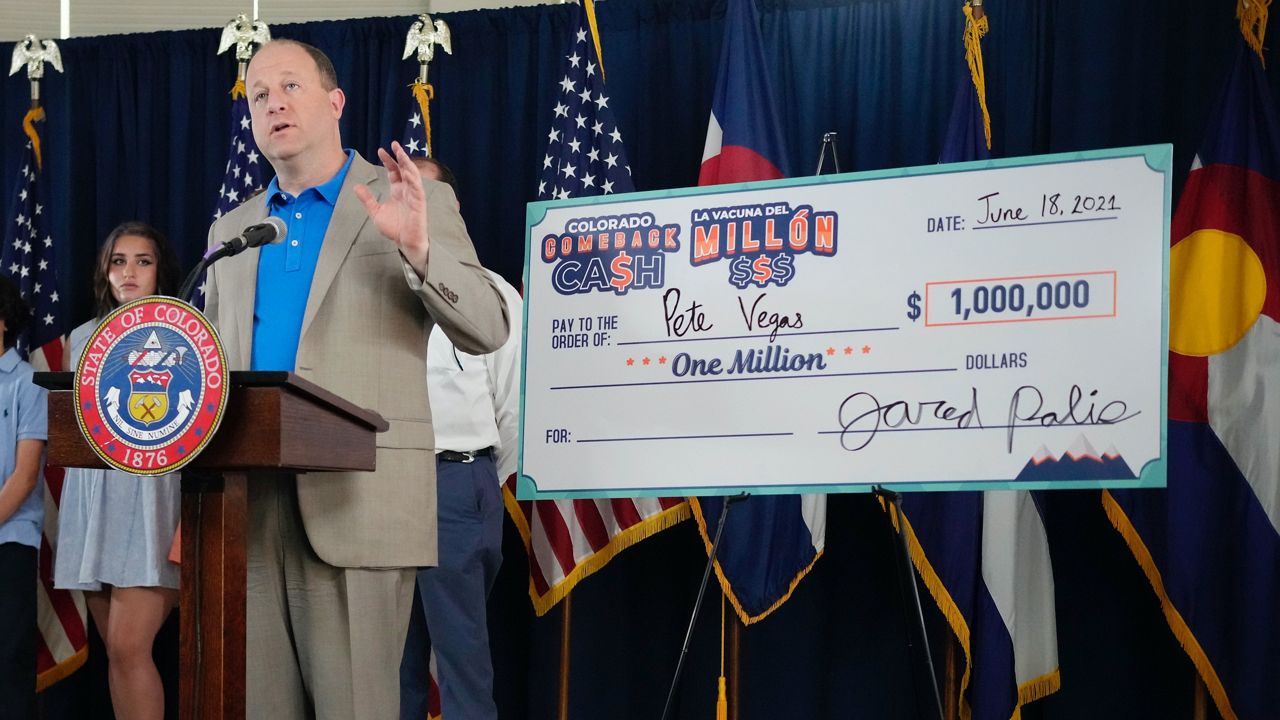A new study suggests that state-run vaccine lotteries did not help increase COVID-19 immunization rates among the public despite the vast prizes made available. It joins a growing pool of research indicating that, in the future, governments may need to find alternatives to lotteries to incentivize vaccinations.
The Boston University School of Medicine study, published Tuesday by the Journal of the American Medical Association, looked at 15 states that sought to incentivize vaccinations last year with cash lotteries, and compared them to 31 states that didn’t during that same time period. (Four lottery states were left out because they started or ended their programs outside of the study period.)
The study looked at lotteries from those 15 states, including California, North Carolina, Kentucky, Arkansas and Michigan. Each of the studied states offered a maximum individual cash prize between $300,000 (in Delaware) and $5 million (in New Mexico) to vaccinated individuals.
Vaccination rates, the study found, were briefly spurred by lottery announcements — in the combined studied states, rates increased by 1.1 per 100,000 people. But within four weeks, the rates fell to 0.4 vaccinations per 100,000.
“There was no significant difference in vaccination level change and no change in trend in vaccination rate difference between lottery and non-lottery states,” said the report.
This report is a follow-up to an earlier study from some of the same authors, published last July, examining the effects of lottery-based incentives in Ohio alone — which, similarly, found that incentives didn’t boost vaccinations.
“Further evidence supporting the effectiveness of lotteries as strategies for increasing vaccine uptake are needed prior to widespread and costly adoption,” said the earlier report.
But, as researcher Andrew Friedson told HealthDay in October, it’s possible that incentives might not make a difference at all for some groups.
Like the Boston University researchers, Friedson, an associate professor of economics at the University of Colorado, was among a team whose study found little association between vaccination rates and lotteries intended to boost vaccine adoption.
"Maybe they've been subject to some incorrect information with regard to the dangers of vaccines or with regard to the benefits of vaccines, and then unless you're able to adjust their beliefs, no incentive is going to make a difference," he said.
That said, not every researcher agrees. A study published by the Boston University School of Law argues that 10 of 12 statewide lotteries they studied “generated a positive, statistically significant and economically meaningful” impact on vaccination rates.
“Lottery programs appear to induce at least some people who otherwise would not have been vaccinated to opt for vaccination, rather than encouraging those who would have been vaccinated anyway to simply do so more quickly,” said that study, published in September.
According to their data, the Ohio vaccine lottery led to 32,000 vaccinations that might not have otherwise occurred — and that, across all of the states studied, lotteries led to a 0.007% increase among the vaccine-eligible population.
